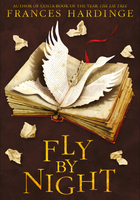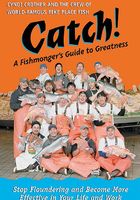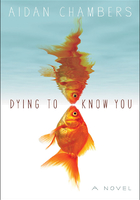WHEN IT BEGINS, I AM SHELLING PIGEON peas, pwa kongo, into a metal bowl under the almond tree in Madame Faustin's garden. I sit on the low wooden chair, my knees apart, the unshelled peas nestled in my old yellow skirt, so faded it's almost white. Pwa kongo for sauce. The thin layer of dirt the pods leave on my fingers feels sticky as I crack them. My mother, my manman, is inside, upstairs from where we sleep in the basement, cleaning for Mme Faustin, who has gone out to the bank. My sister, Nadine, is up the road at Jimmy Jean-Pierre's house, waiting for our soap opera to come on at five. Then, out of nowhere, groans a deep, furious noise, a deafening growl and then a terrible shaking. The sound and the shaking become one sensation—I can't separate the two—and the world collapses.
I am a rag doll throttled in a dog's mouth. The earth lurches back and forth and back again, and then it shudders in violent waves. I can't keep my balance, and I fall to my knees. I see the house fall. I know I should be afraid, but I feel nothing but numbness. It is the end of the world, and I pray, Please, God, please, God, oh, God, please. And I know that this is when I will die, and I say to the universe: okay.
Everything explodes in white: a chalky cloud of cement powder engulfs me, engulfs the house, engulfs the entire city of Port-au-Prince. With a roar we are all swallowed. The house is gone. The city is gone. The world is no wider than I am. I can't see more than inches from my face. Then the sound of the people rising up in prayer and song—the furious, screaming gratitude of the just-saved. Jezi! Jezi! and Mèsi Seyè! Mèsi Seyè! Thank you, Lord! My knees are bleeding. The blood is warm. My bare toes flex, scrape the dust. Somehow, I am not dead. The pwa kongo are scattered around me.
Everyone I know is gone. Manman is dead. Nadine is dead. I am the only one left. I try to call Nadine's cell phone, over and over. I text her, but there is no signal.
I am too stunned to scream. Everything is severed. Nothing is real except the dust and the blood. I can't think in words. An eternity passes in minutes, and there are no words. I'm still on my knees, and I lean into the dirt, I put my head to the ground, I'm screaming in my blood, but I can't make a sound; my heart is too tight. Everything in me is clenched like a fist.
The white dust begins to settle, but the world is still shaking, or it feels like it's shaking, or I am shaking. Nothing is the shape it was. Nothing. Then I see her, appearing like a ghost. Nadine staggers up the street and is not dead. She looks lost, as if she doesn't know the neighborhood, doesn't know the world anymore. Her face and lips and hair are caked white with dust. "Where is Manman? Where is Manman?" she keeps saying, as though by asking the question, she might force the answer out of me, out of the universe.
The words stick in my dry throat and I start to cry without tears. I cannot tell Nadine what she must already know: that Manman is somewhere amid the jagged cement angles and the crumpled rebar of the house, the concrete ceiling fallen to the concrete floor, the doorway like a collapsed mouth exhaling dust into the darkening sky.
"Manman!" screams Nadine. Her voice is a child's voice. "Manman! Come here, Manman! Stop it! Come back to us, Manman!"
The ground trembles again. Nadine falls to her knees. I take off running toward the house.
"Manman! I'm coming, okay? Just wait. Wait for me."
Nothing is where it is supposed to be. I can't tell what is the ceiling or the floor. Doors are no longer doors, walls are no longer walls. I don't know how to begin to get in. "Wait for me, Manman," I say again.
Another aftershock hits, and the house sinks and settles. "Magdalie, don't!" Nadine cries. "Please. You can't do anything."
I push at the cement, I scratch at the crevices until my fingers bleed. I start to cry. "Please, wait, Manman." It is so heavy. I can't move it. Manman is under there.
"Nadine, bring me something. Anything. Do you see a shovel? What do you see?"
"Do you hear her?" calls Nadine, her voice filled with panic and desperate hope. "Can you hear her? Is she alive?"
"Bring me a shovel or a hammer or something!" I scream. I throw my weight against the unyielding cement. One time on TV, I saw a woman lift a car off her child. They say if you love someone enough, you can do anything, you can find superhuman strength. "Help me! Help me, Nadine. Jesus, help me!"
The ground beneath my feet shudders. The retaining wall behind me collapses, one of the cinder blocks grazes the back of my head. The roof caves in completely with a slow, shattering groan and a billow of white dust.
"Manman!" I scream.
"Magdalie, stop it." Nadine is sobbing. "Please, you're going to die, too."
A hard, rough hand grips my upper arm. "Stop, Magdalie."
I blink. "Tonton élie?" My uncle, Manman's youngest brother. I don't know where he's come from. I don't know how long it's been. His face is grim, chalky dust creased into every line on his forehead. "Manman's under there," I explain. "I have to find her."
I try to pull away, but he's gripping my arm so hard it hurts. "Stop, Magdalie. Go back to your sister."
"No! Manman's under there!"
"You're not strong enough. I'll find her. I'll get a hammer and I'll find her."
"Let me help you!"
"Go to your sister," orders Tonton élie. "Go to Nadine and go out to the street, away from the buildings."
"But, Tonton—"
"Nadine needs you, you understand?"
"Wi. Yes, Tonton."
I go to Nadine then. She is shivering and she lays her head in my lap. We huddle together on the street. Night falls, and it is so cold. The street is full of people. A man we don't know gives us a sheet, and we cover ourselves with it and pull up our knees, and we drag a piece of dusty cardboard over that. The gravel from the road sticks to the blood oozing from my knees and the back of my head.
Nadine and I never let go of each other's hands. All night, the earth shakes, again and again, until we can't tell whether the shaking is in the earth or in our bones or in our heads. The next aftershock might be the end; the earth might crack open and swallow us whole. A woman in white prays, until slowly, inconceivably, the sun begins to come up over what remains of Port-au-Prince.
In the morning, Tonton élie comes to us. He looks weary and sucked dry.
"Girls, go down to Delmas 18, to Tati Geraldine's house."
"What about Manman?" asks Nadine.
"I'm looking for her," says Tonton élie.
"Is she dead," I say. It doesn't sound like a question at all.
"It'll be easier to look, now that it's light."
"Tonton …"
"Go to Tati Geraldine's house, Magda. You can't stay in the street."
"Can we go to your house, Tonton?"
"It fell, too, Magdalie. Flat." He turns around and goes back to the house.
Nadine reaches out and clasps my hand, and we go.
Nadine and I stumble through the ruins of the city. Our world has collapsed, the buildings crumbled inside out. Our everyday world is unfamiliar. Our school has buckled. Our church is cracked and tilted like a boat in the wind. We walk over the dead, and there is no space in my head to think about that. The streets are still full of people—injured people, stunned people, people seeking help, people trying to help others. So many of them are covered in white dust.
A woman, a mother, sits alone holding two tiny patent leather shoes, wiping the dust off them, polishing them against her skirt. Her eyes are dead. An older man keens, "My wife is gone, my wife is gone," and another man seizes him around the waist to keep him from falling down. But most people aren't screaming or crying. The city is simply … migrating. We are migrating. I am numbly surprised to see all these people because I thought maybe everyone in the world had died.
The sidewalks cannot hold all the bodies. Some are wrapped in sheets. I keep noticing small details: plastic pearl earrings, a necklace with a dolphin, a Boston Celtics T-shirt, a pair of jeans with rhinestones on the back pockets. Those people put on their clothes yesterday morning, pulling on their pants or skirts and shirts, fastening their bras and belts, not realizing those were the clothes they would die in. Some have on only one shoe. Their feet are callused from when they used to walk. A dead woman's skirt is tangled around her waist. A dead man's T-shirt rides up, showing the world the bottom of his fat gut. Everything and everyone is exposed.
I cry a little, but I can't really feel anything. Time doesn't exist anymore. There is no more future. I say, "Thank you, Jesus, thank you, Jesus, please, Jesus …" over and over. Words flow through my body, like blood or air, reminding me that I am still alive. Nadine and I cling to each other as if we are one person.
We make our way to the house of the old lady Manman calls Tati Geraldine, her countrywoman, whom she knows from where she grew up, in St. Juste. That night, we all sleep in the lakou, the yard, with the ducks. Someone hears on the radio that a tsunami is coming. Anything seems possible. People start to run. The whole neighborhood runs. Everyone runs. The injured limp, if they can. If they can't, people carry them. Nadine and I run, too. We don't know where we're running. I feel strangely calm. We are running through a dreamscape. Nothing is surprising anymore. There is nowhere to go. Nowhere is safe. We stop running when we are too tired, hungry, exhausted, resigned to continue. Nadine says, "If the sea rises, we won't have time to get anywhere, anyway, Magdalie. It's enough." And she sits on the ground. But no tsunami comes.
On Thursday, Tonton élie comes and joins us at Tati Geraldine's. He tells us they have found Manman's body, on what was the second floor of the house. The wrought-iron terrace door fell on her. The basement—our little space where we lived—is fine, the walls not even cracked.
I see black. They tell me I suffered a kriz—that I fell to the ground, shaking uncontrollably, my jaw clenched. I wake up later, bruised and scraped, my head aching, my knees bleeding again, with Nadine lying next to me. She doesn't say anything, and she hardly ever speaks of Manman again.
Manman was ironing when she died. Hearing that made me angry. She always hated ironing.
At first everyone tries to find out who survived, and then, after a while, we start not wanting to know anymore. The city smells cloying, the wrong kind of sweet, the smell of rotting meat, of death. There are big blue flies everywhere, feasting. The smell sticks in the back of my throat, and I know that I will never stop tasting death.
On Friday, we move onto the local soccer field, me and Nadine and Tonton élie. We are homeless. Mme Faustin's house is gone, and if Manman isn't cooking for her and washing her clothes, we have no right to live with her anyway. For two days we sleep on the ground. On the third day, we start building. We use what we find, sheets and sticks. We use what we salvage from the ruins. All around us, people are doing the same. Some we know, and some we don't. Now we know them. Everyone shares what they've got. No one is stingy. If someone cooks food over a small fire, everyone gets a little. Rice, spaghetti.
Now people talk, and they try to make sense of what happened. They say the earthquake happened because we are all sinners, because we're all guilty of evil. Or they say it was a missile that France sent to kill us, or an underwater tunnel that the United States is building between Miami and Haiti. Me, I don't know why the earthquake happened. I don't understand it at all. I don't want to think it was random chance. But I can't force it to make sense, either. I don't want to believe that God would do this, and I don't want to believe that Satan is winning.
Now I know that there is nothing on this earth that cannot be ground to dust in seconds. Now I know I can't control anything at all. Everything I know is gone, everything, everything but Nadine. My sister, the only real thing left—the sound of her voice, the warmth and shape of her near me at night. She is as much of me as I am.
WHY WOULD I WRITE ABOUT IT, WHEN THERE is no way I could ever, ever forget?
It doesn't change anything if I write it down or not. It doesn't unbury anybody.
It doesn't save anyone.
I don't need to remember. I cannot forget.
There are memories you write down so you can preserve them. This isn't one of them.
There are memories you write down to get them out, to force them as far away from you as you can.
Only, it never works. My memories are out to get me. I push away the dog of memory with a stick as it gnashes its teeth and leaps for my throat. I remember, whether I want to or not.
I am only one witness, of millions. It doesn't matter what I say. It doesn't change a thing.















